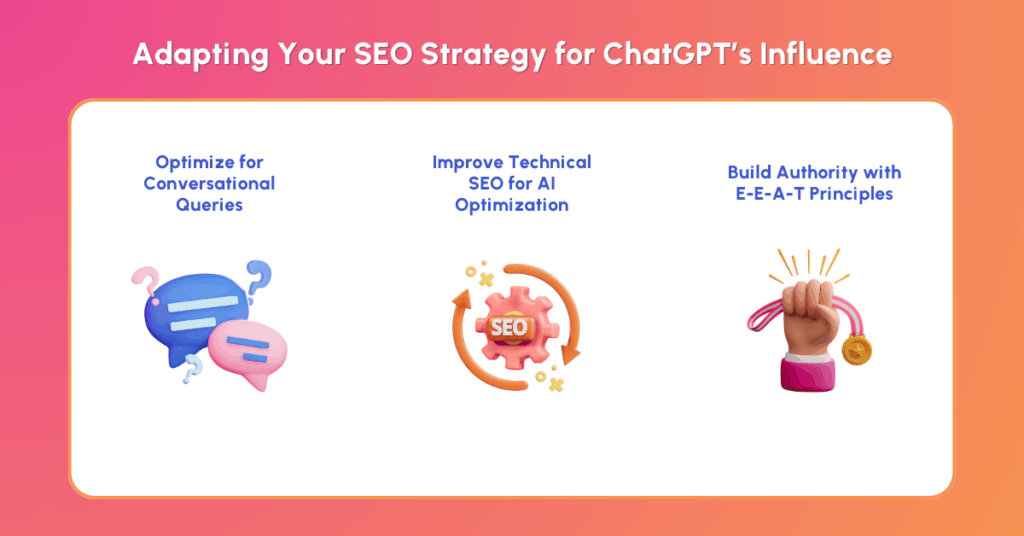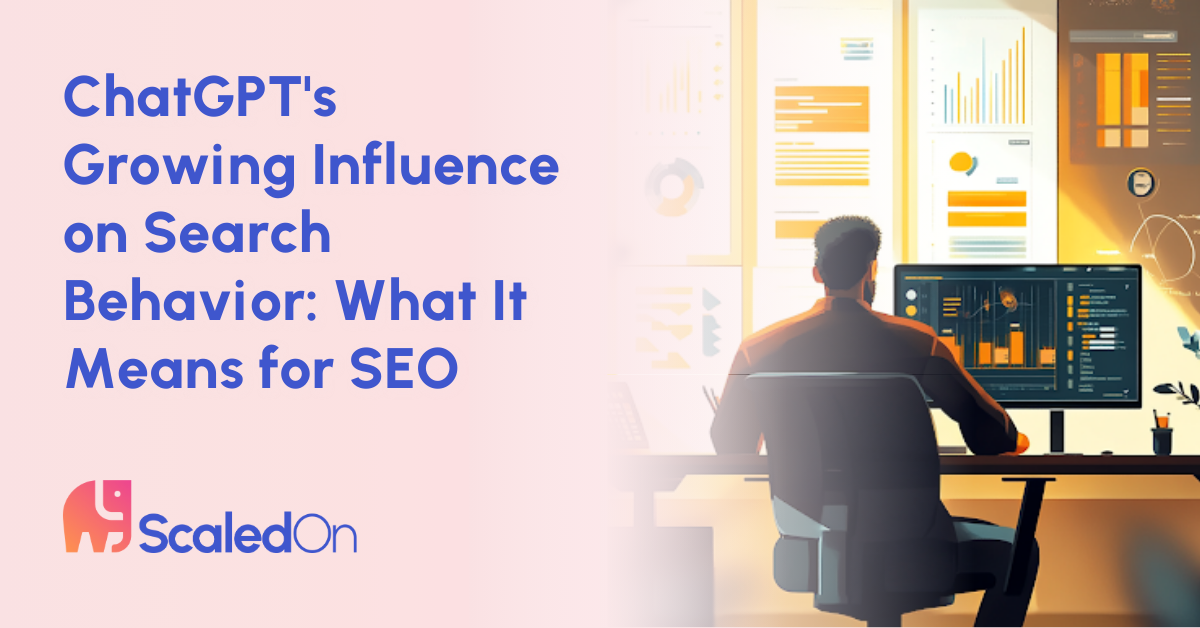Artificial Intelligence (AI) is revolutionizing the digital landscape, and ChatGPT is at the forefront of this change. As one of the most powerful AI-driven language models, ChatGPT is altering how users interact with search engines and access information online. But what does this mean for SEO? How can businesses adapt to this shifting digital landscape?
In this blog, we’ll dive into ChatGPT’s impact on search behavior, how it’s changing SEO strategies, and what you need to do to stay ahead. 🚀
Table of Contents
How ChatGPT is Changing Search Behavior

1. Conversational Search is Taking Over
With ChatGPT, users now expect direct, conversational answers to their queries rather than sifting through multiple search results. This shift means:
- More reliance on natural language processing (NLP) for keyword research.
- Increased importance of long-tail keywords and question-based searches.
- A greater focus on structured content that answers user queries immediately. 🗣️
👉 Want to learn more about keyword optimization? Check out Scaledon’s guide to SEO keywords.
2. AI is Becoming a Primary Source of Information
People are turning to AI-driven chat models like ChatGPT instead of traditional search engines for quick answers. As a result:
- Users spend less time on search engine results pages (SERPs).
- More direct answers mean fewer clicks on traditional search results.
- Google is adapting, incorporating AI-driven summaries in SERPs, making featured snippets more crucial than ever. 📈
3. Personalized and Contextualized Search is Rising
ChatGPT understands user context better than a simple keyword-based search. This means:
- Search results are tailored to individual users based on prior queries.
- User intent plays a bigger role in ranking factors.
- Businesses need to optimize for context, not just keywords. 🎯
👉 Want to improve your website’s contextual relevance? Learn more about user intent optimization.
How SEO is Evolving in the Age of ChatGPT
1. Content Needs to Be More Conversational and Engaging
Search engines are prioritizing content that sounds natural and provides clear, concise answers. To stay competitive:
- Write in a conversational tone.
- Use question-based headings (like FAQs) to align with search patterns.
- Make content easy to scan with bullet points and short paragraphs. 📜
2. Long-Form Content is More Important Than Ever
While ChatGPT provides quick answers, users still seek in-depth content for complex topics. Make sure your content:
- Is comprehensive and provides authoritative insights.
- Includes internal links to relevant resources.
- Uses structured data to improve search visibility. 🔍
👉 Need help with content strategy? Check out Scaledon’s content marketing services.
3. Featured Snippets and Zero-Click Searches are Expanding
With AI-driven summaries dominating SERPs, securing a featured snippet has become vital. How to do it:
- Answer common queries clearly and concisely.
- Use numbered lists, tables, and bullet points.
- Optimize meta descriptions and headers. 🏆
4. User Engagement Signals Matter More
Search engines are prioritizing pages with high dwell time, low bounce rates, and strong engagement metrics. To improve:
- Add interactive elements (videos, quizzes, and infographics).
- Improve page speed and mobile optimization.
- Encourage social shares and discussions. 📊
Adapting Your SEO Strategy for ChatGPT’s Influence

1. Optimize for Conversational Queries
Since ChatGPT relies on NLP, question-based searches are gaining prominence. To rank well:
- Use FAQ sections with commonly asked questions.
- Write content in a natural, conversational tone.
- Target “how-to” and “why” searches. 🤔
2. Improve Technical SEO for AI Optimization
AI loves fast, well-structured websites. Ensure that:
- Your site loads in under three seconds.
- You implement schema markup for structured data.
- You prioritize mobile-first indexing. ⚡
👉 Need a website audit? Check out Scaledon’s technical SEO services.
3. Build Authority with E-E-A-T Principles
Experience, Expertise, Authority, and Trust (E-E-A-T) are more crucial than ever:
- Showcase expertise with author bios and credentials.
- Earn backlinks from reputable sources.
- Regularly update content to keep it fresh. 🏅
👉 Want to enhance your site’s credibility? Explore Scaledon’s link-building strategies.
The Future of SEO in an AI-Powered World
AI-Generated Content: Helpful or Harmful?
While AI can assist with content creation, relying solely on automated content won’t rank well. Google still prioritizes human-written, high-quality content. 📝
The Role of Voice Search
As ChatGPT and other AI tools integrate with smart assistants, voice search is rising. Ensure your SEO strategy includes:
- Conversational phrases.
- Short, direct answers.
- Local SEO optimizations. 🎙️
Search Intent Will Continue to Evolve
User expectations will shift towards more accurate, context-aware responses. Keep adapting by:
- Monitoring search trends.
- Testing new keyword strategies.
- Enhancing UX/UI for seamless navigation. 🔄
FAQ Section
No, but it will change how people use search engines. AI assists but doesn’t replace traditional search. 💡
Focus on conversational content, structured data, and user engagement
AI can assist, but human input is necessary for ranking success.
E-commerce, healthcare, finance, and education are seeing the biggest shifts. 📊
Final Thoughts & How Scaledon Can Help
ChatGPT and AI-driven search are reshaping SEO, but with the right strategies, you can thrive in this new landscape.
At Scaledon, we specialize in:
- Conversational content optimization
- AI-driven SEO strategies
- Technical SEO improvements
👉 Need help adapting to AI-powered search? Contact Scaledon today! 🚀

